Photo: Jo-Anne McArthur/We Animals Media
Who is holding the Canadian food industry accountable for the welfare of farmed animals?
This month’s episode of the Informed Animal Ally welcomes Maha Bazzi to discuss the Canada Animal Welfare Scorecard from Mercy for Animals. The Scorecard is the leading annual report ranking major food companies operating in Canada on their animal welfare progress, aiming to improve transparency and accountability for Canada’s food system.
Note: This written discussion has been edited for length.
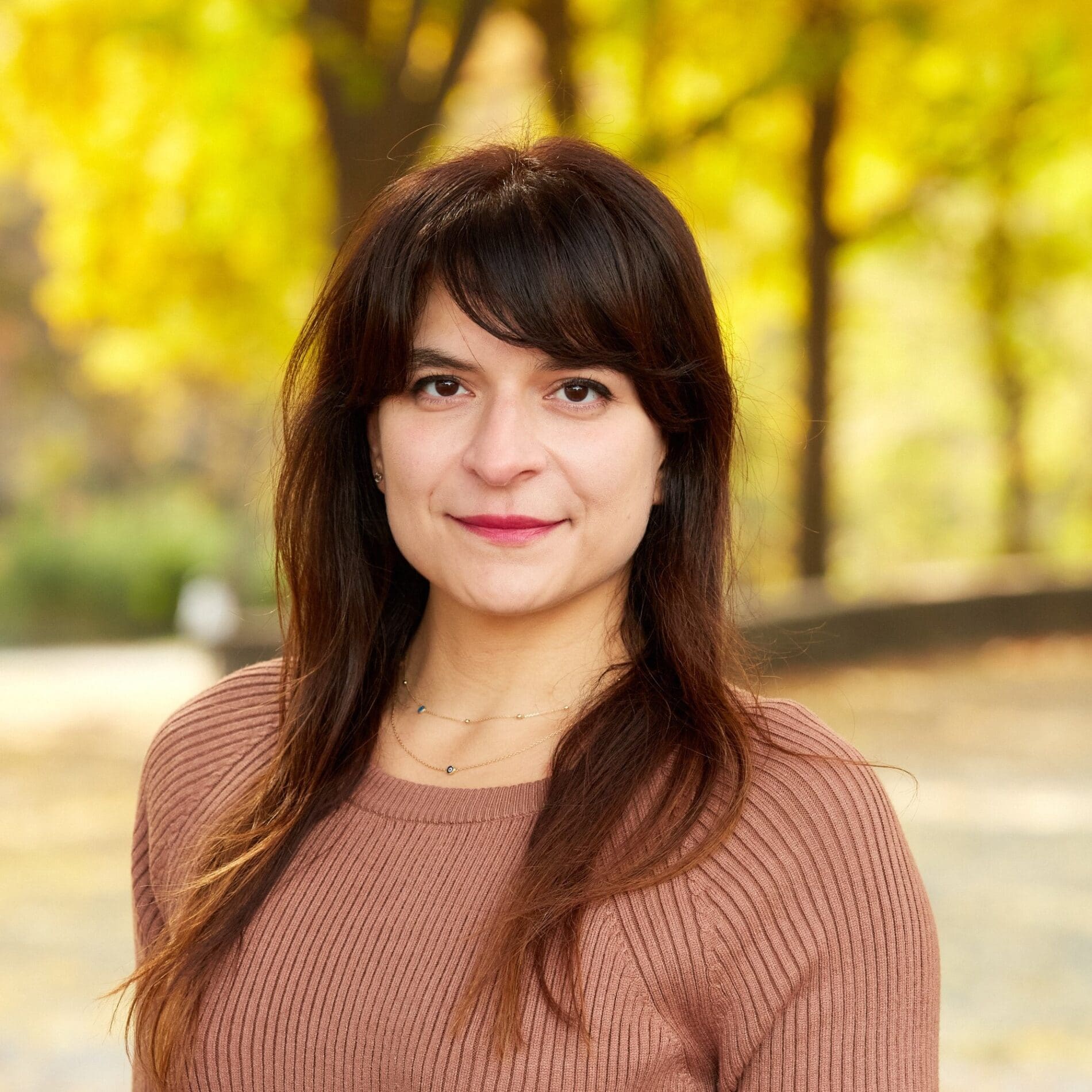
Featured Guest: Maha Bazzi
Director of Animal Welfare Initiatives, Mercy For Animals
Maha Bazzi is the Director of Animal Welfare Initiatives at Mercy For Animals, where she leads the organization’s corporate engagement and campaign efforts across Canada and the United States. With a deep passion for animal welfare, throughout her career, she has worked on international policy initiatives for animals and launched several impactful public awareness campaigns aimed at driving meaningful change in the food industry, particularly for farmed animals, across North America.
- Introduction
- What is the Canada Animal Welfare Scorecard?
- The food industry's role in animal welfare
- Progress in welfare reporting
- Many companies not meeting commitments
- How industry practices compare to public trust
- How can consumers push for better practices?
- How different companies are performing
- How Canada stacks up against other countries
- Vision for the future
- Save lives by eating more plants
- Next episode
Introduction
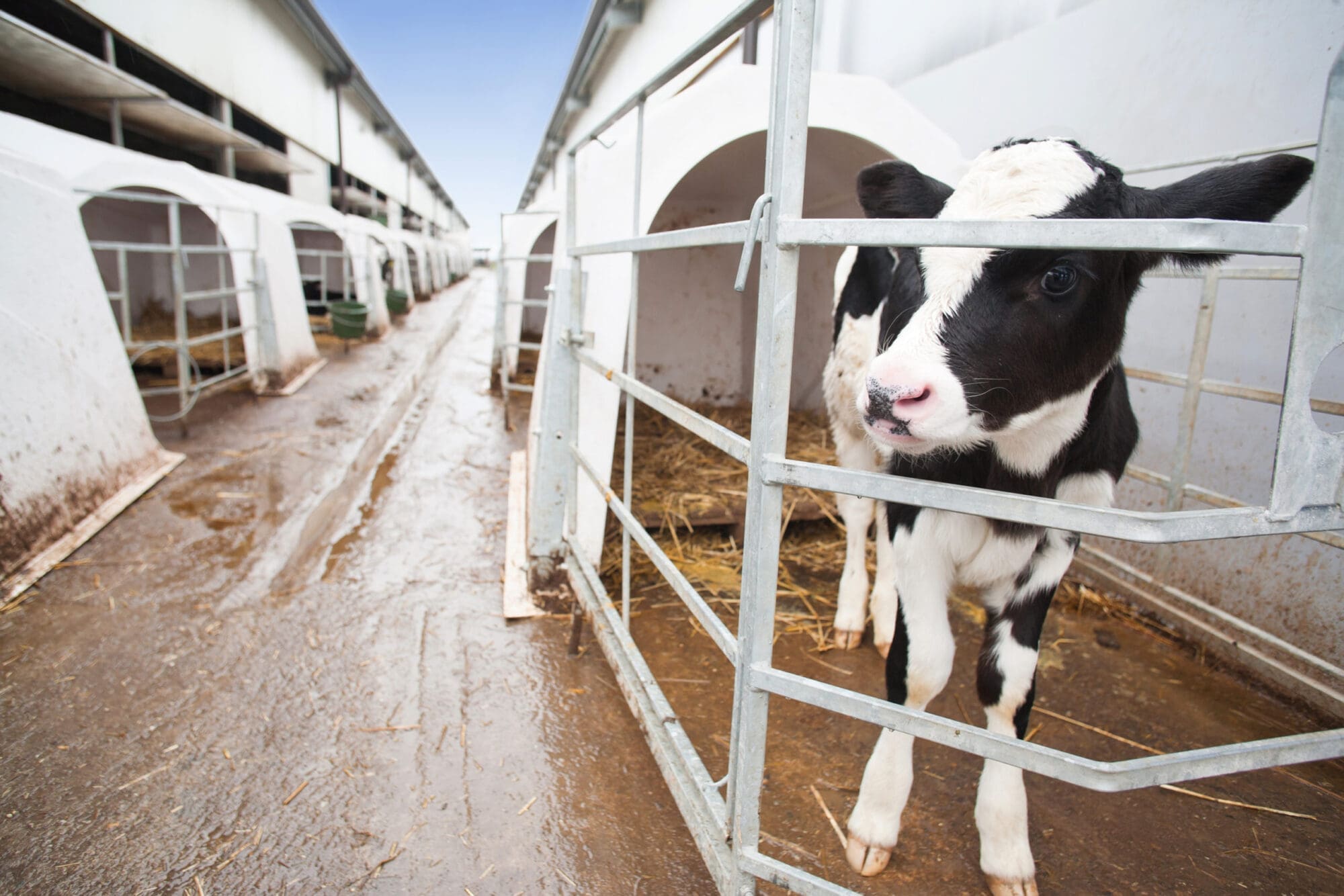
Chantelle: In this season of the show, we’ve been looking at a wider view of animal advocacy and where Canada stands on the world stage when it comes to animal protection.
This month, I am excited to continue this discussion with a look at Mercy for Animals’ Animal Welfare Scorecard.
So before we jump into that, Maha, I would love to hear about your role at Mercy for Animals and how you got involved in animal advocacy work.
Path to animal advocacy
Maha: Absolutely. So as you mentioned, I’m the Director of Animal Welfare Initiatives here at Mercy for Animals and I’m based in New York City.
Mercy for Animals is one of the world’s largest international farmed animal advocacy organizations. Our mission is to end industrial animal agriculture by constructing a just and sustainable food system.
In my role, I oversee our animal welfare efforts across corporate engagement and campaigns in the US and Canada in order to move companies across the food industry to adopt and implement policies that reduce the suffering of farmed animals in their operations.
How I got into the field; I actually went to school for graphic design and I worked in the marketing and design fields for a few years here in New York.
Four years into my career, I wanted to pursue a role that had a more tangible impact on people’s lives. So I became a teacher of English as a second language.
I loved the education field. I loved connecting with people from all over the world.
But as an animal lover and someone who’s followed a plant-based diet for a very long time, I realized my career shift needed to be dedicated to helping animals. So I went back to school and pursued a degree in animals and public policy, and after working on international policy initiatives, I found my way to Mercy for Animals’ campaigns team in 2025.
Years later, that was the best decision I ever made. My role allows me to merge my passion for helping animals, crafting compelling public narratives, and educating people to make a meaningful difference for farmed animals.
What is the Canada Animal Welfare Scorecard?
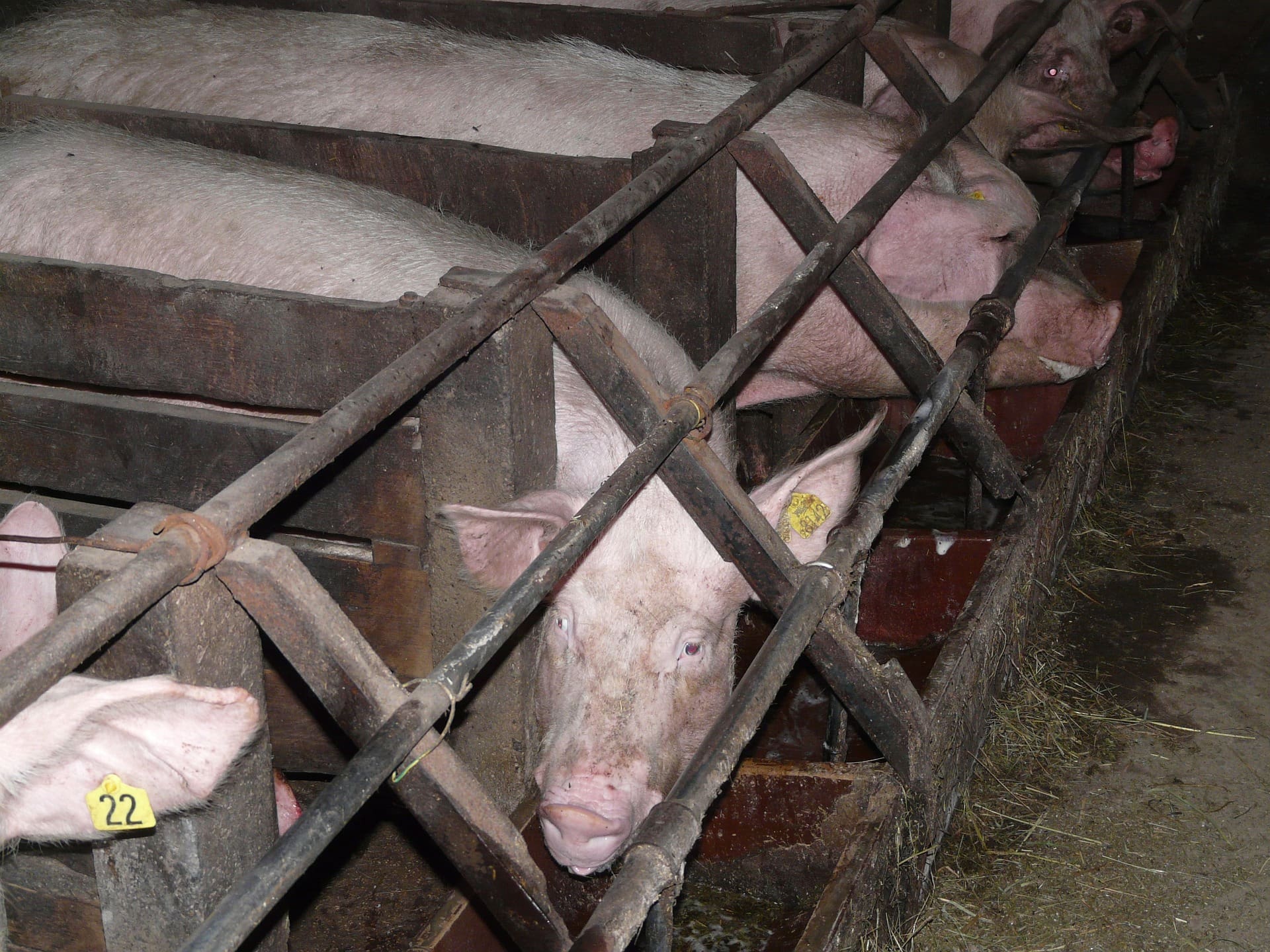
Amy: That’s so awesome.
I love the work that Mercy for Animals does, and I’m super grateful for it. The scorecard, I think, has always been really interesting and my understanding is this scorecard focuses on industry practices and corporate responsibility to incentivize businesses to do better. Can you tell us more about the scorecard?
Scorecard measures three key areas of welfare
Maha: Absolutely. So for the past four years, Mercy for Animals has published the Canada Animal Welfare Scorecard, the only report of its kind focused on ranking major food companies operating in Canada on their animal welfare performance as it relates to three key issue areas.
The first is laying hens confined in cages and companies moving toward cage-free systems that do not use any type of cage, allowing birds space, mobility, and the ability to express their natural behaviors.
The second issue is pigs confined in crates and companies moving toward crate free systems, which are referred to as group housing systems for mother pigs during their gestation periods that do not involve individually confining these mother pigs to any tight enclosures that would prevent them from turning around or lying down with their limbs fully extended.
The third issue is the breeding environment and slaughter method of chickens raised for meat and companies’ adoption and move toward a leading set of global standards called the Better Chicken Commitment (BCC).
That includes improved management practices such as lowering stocking densities, providing better litter, lighting, and enrichments for the birds, and very importantly, eliminating fast growing breeds of birds, as well as replacing live shackle slaughter (which is the predominant slaughter method for chickens raised for meat) with controlled atmosphere stunning (which is a less cruel slaughter method).
So these three policy areas for farmed animal welfare are key to reducing animal suffering and company supply chains.
Mercy for Animals’ benchmarking tool through the scorecard ranks companies based on:
- whether they’ve adopted these meaningful animal welfare commitments,
- if they’re being transparent about the progress they’ve made toward their policies, and
- if they’ve published clear plans for fully implementing their commitments.
The initiative provides transparency on welfare commitments
Maha: To give you some background, from 2012 to 2018, Mercy for Animals released 12 animal cruelty investigations in Canada, after which many major food companies in Canada started adopting commitments to sourcing only cage-free eggs, crate-free pork, and chicken aligned with the Better Chicken Commitment.
So when the companies announced these public pledges, they signaled to the industry that they were ready to reform their supply chain practices and meet consumer demand for higher welfare products.
Mercy for Animals’ Canada Animal Welfare Scorecard is an important public accountability mechanism that tracks company and industry progress and transparency on these issues and helps keep the public informed about various brands’ performance. Our report provides transparency and accountability in an environment where some companies and industries simply refuse to do so.
The food industry’s role in animal welfare

Chantelle: It’s such an important project and I’m really glad it’s available.
As you mentioned, there’s so little transparency in the animal agriculture industry. I would love to know more about what role different parts of the food industry have in protecting animal welfare.
Canadian animal agriculture industry is self-regulated
Maha: So in Canada there are no federal laws to protect farmed animals; industrial animal agriculture is actually self-regulated.
The National Farm Animal Care Council (NFACC) is a body composed of industry stakeholders and associations. And NFACC develops codes of practice for each farmed animal industry by species.
But 49 out of 56 members, or 88% of NFACC members actually represent industry. They include trade groups like the Canadian Pork Council and big food companies like egg producers and grocery stores.
So most industries in Canada rely on the voluntary recommendations laid out in NFACC codes. These codes are unlegislated. They’re unenforceable in most provinces, and compliance with the codes is not evaluated.
Very importantly, standards on all critical animal welfare issues do not go nearly far enough to establish meaningful standards to protect farmed animals. These are bare minimum recommended standards and they fall short of leading global animal welfare standards.
Agriculture industry guidelines recommend keeping hens in cages
Maha: I’ll give you an example on cage-free. NFACC standards have failed to ban caged confinement for laying hens, and they allow conventional battery cage systems until 2036. Instead of recommending a ban on cages, the council encourages farmers to invest in a move toward “enriched cages”, which are cages that are only slightly larger, despite scientific evidence that all cages harm animal welfare.
In enriched cages, hens still spend their entire lives on wire flooring. They have space per bird that’s no larger than a standard sheet of printer paper. This move toward enriched cages has unfortunately become more entrenched in the Canadian industry year after year.
So basically, NFACC is mostly the industry creating its own guidelines.
Consumer demand and corporate commitments drive change
Maha: This is very different from corporate commitments, which are mostly driven by consumer and investor concern.
With no federal legislation protecting animals in Canadian farms, and these inadequate industry guidelines acting as a benchmark, the private sector is really instrumental in advancing animal welfare.
In Canada, restaurants, grocers, food service providers and other food companies play a critical role in moving the food industry toward more responsible sourcing standards.
Mercy for Animal emphasizes the importance of follow through and transparency from companies on their animal welfare commitments. Because without accountability, consumers will be left in the dark about company’s supply chain practices, and animals will continue to suffer from the worst factory farming conditions.
Progress in welfare reporting
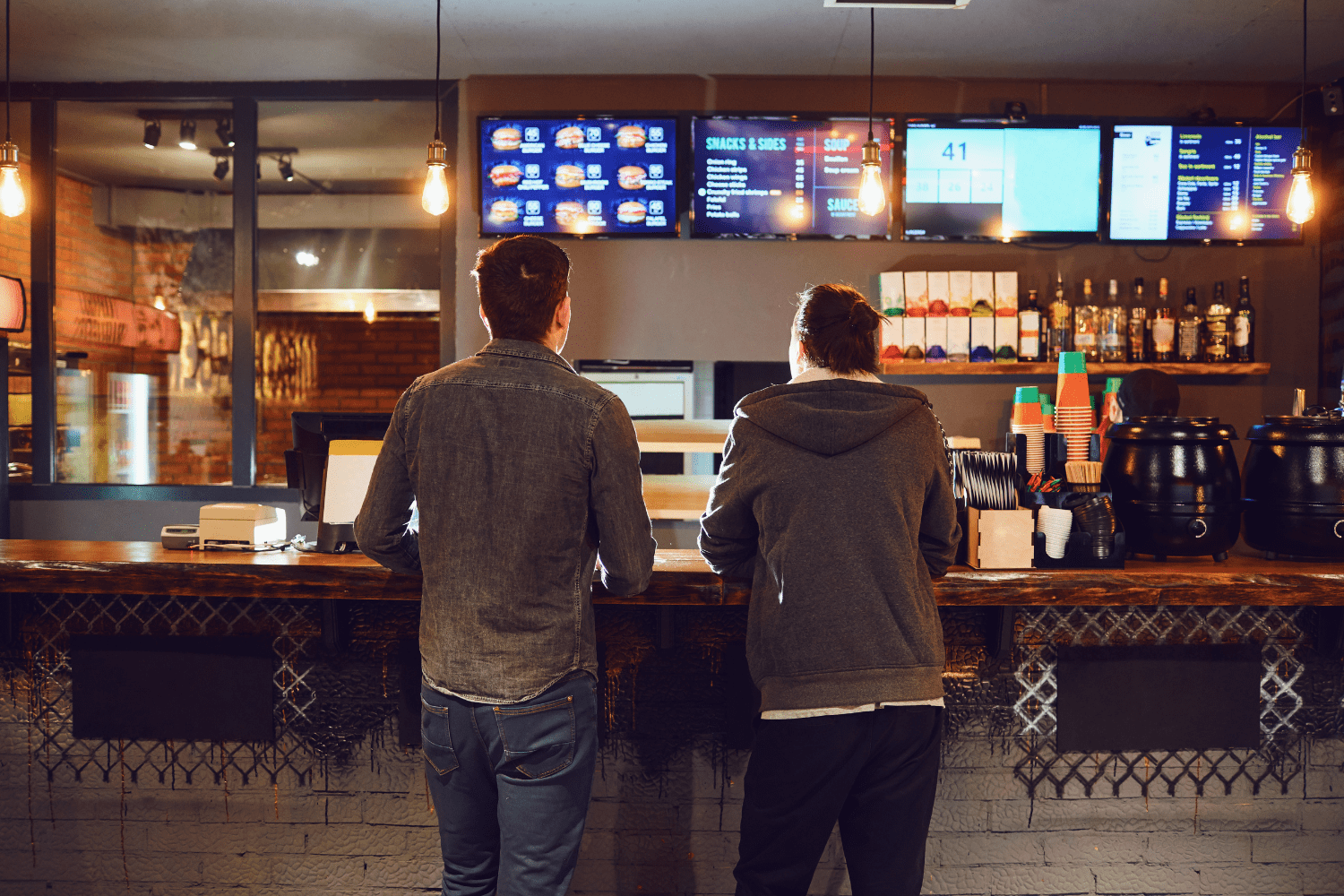
Amy: Oh, there was so much good in everything you said there in terms of just like how lacking the system is in Canada and how lacking the standards are. It’s certainly something that needs a lot more attention and time and something that pushes the industry to make better commitments because it’s not happening through legislation. So having some other incentives is necessary.
Given that, what are some of the areas that you’ve seen progress on in this latest scorecard?
Increase in companies reporting progress
Maha: Since 2021, the first year of Mercy for Animals launched the Canada Animal Welfare Scorecard, the number of companies that have begun reporting progress each year has remained steady. So in 2024, for example, 10 companies reported for the first time on their policies.
This year’s report reported 15 policies as fulfilled, including cage-free policies from McDonald’s and Boston Pizza. 15% of companies featured in the report reported regional progress on all three animal welfare issues that I mentioned that we evaluate, which is a 5% increase from 2023.
We’ve also seen multiple companies this year report progress on their move toward controlled atmosphere stunning, which is the Better Chicken Commitment’s approved slaughter method for chickens raised for meat.
We saw more companies reporting progress as well toward transitioning to group housing for mother pigs.
So Mercy for Animals’ annual benchmarking shows a trend toward regional reporting on animal welfare in Canada, which is promising.
We’re seeing an increase in both the number of companies reporting progress and the number of policies companies are reporting on each year, which is a good indication that animal welfare is being integrated into food companies’ corporate responsibility programs.
For example, the number of companies reporting regionally has increased from 11 to 28 over the past four years. And the number of policies evaluated with reported progress has increased more dramatically from 13 to 48.
So we’re seeing that companies that integrate animal welfare into their sustainability work are developing more comprehensive policies and transparency practices over time, which is really encouraging.
Many companies not meeting commitments
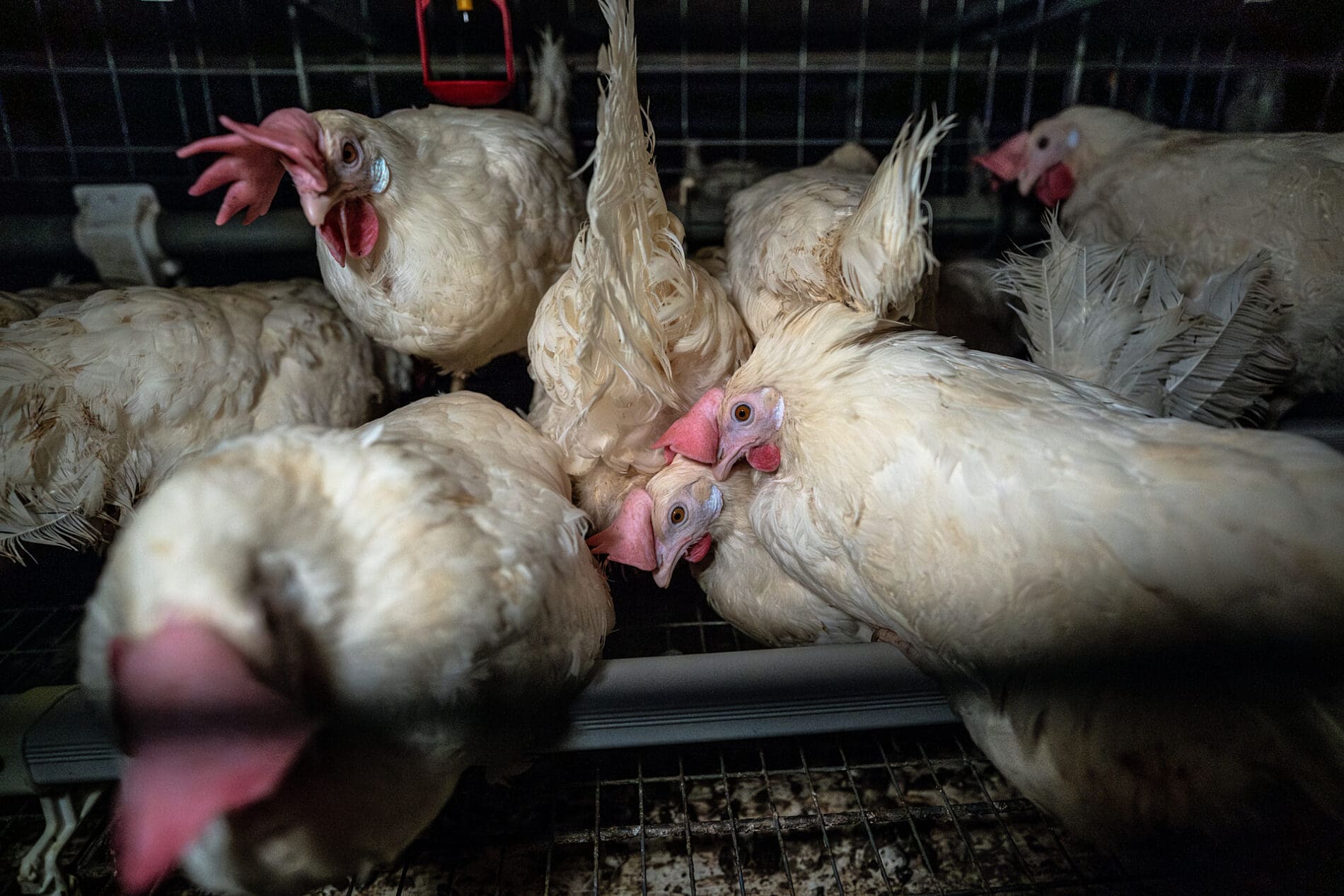
Chantelle: That’s really good to see that progress. I think it’s really a testament to how this advocacy and how consumer pressure can push companies to do better over time.
But as we all know, there’s a long way to go still. So could you speak to any ways that companies are not meeting their commitments?
Are Canadian eggs cage-free?
Maha: I think when it comes to companies not meeting their commitments, it’s really important to highlight the lack of cage-free progress in the retail sector in Canada.
This sector is the largest purchaser of eggs and could carry the greatest impact on laying hens if retailers were to transition to fully cage-free sourcing.
But retailers are failing to publish plans toward transitioning to fully cage-free systems. And most retailers, including Walmart, Loblaws, Sobeys, Longos, have even walked back their commitments by removing or postponing their commitment deadlines, which were meant to be 2025 this year.
To make things worse, the country’s major egg producers, Burnbrae Farms and Gray Ridge Eggs, are not being transparent about their use of cages or their plans to eliminate them.
Retailers’ lack of firm deadlines and measurable goals makes it harder to track progress, and it also undermines consumer trust. Without these specific deadlines in place, retailers are showing no urgency in addressing this key animal welfare concern. They’re weakening accountability and they’re slowing industry-wide change.
It’s really important for these companies to set clear goals with annual targets to drive real progress. Because this continued delay is keeping hens in cages, which is completely unacceptable.
How industry practices compare to public trust

Amy: Absolutely. We’ve heard a lot about public trust from the government, from industry.
There’s sort of this idea that if the public is trusting then everything’s fine. And I’m curious if you can speak more to that, how industry practices stack up against their public messaging and consumer expectations.
Canadians want more transparency in animal farming
Maha: Yeah, absolutely. This is a very important topic because studies consistently show that actually Canadians want farmed animals to have higher welfare conditions, and they want companies to share information about how animals are treated in their operations.
In fact:
- More than 8 out of 10 Canadians say that stores and restaurants should be transparent about the types of eggs they source.
- More than 7 out of 10 Canadians support a national ban on caged confinement.
Humane washing organizations invest in marketing over living conditions
Maha: But industry marketing associations are growing in size, and they’re receiving millions of taxpayer dollars to support advertising under the appearance of building “public trust”.
In Canada’s food system, these organizations are humane washing outdated and harmful practices. Groups like Chicken Farmers of Canada, the Egg Farmers of Canada are investing millions to influence public opinion about animal welfare rather than improving how animals are actually treated.
Does Canada have factory farms?
Maha: For example, one common myth is that Canada does not have factory farms, which is only bolstered by industry advertising. Chicken Farmers of of Canada runs paid advertisements that claim that the country does not have factory farms because Canadian chicken farms are family farms.
Meanwhile, an average chicken farm in Canada houses a staggering 36,000 chickens, which rivals any other industrialized farming production model. A family farm designation has no connection whatsoever to farm size or production method. It simply means a farm that is not corporate owned.
Another association, the Egg Farmers of Canada conveniently omits the term cages in most of their public messaging. Instead, they refer to enriched cages as “enriched colony housing” or “alternative housing”, which helps create this public framing that these types of systems are acceptable when in reality they’re still systems where birds are caged.
Another example is Canada’s largest egg producer Burnbrae farms. Their labeling on cartons of eggs misleads the public into believing that they’re purchasing cage-free eggs when they’re actually purchasing eggs from hens who spend their lives in cages. One survey showed that nearly half of Loblaws customers said they believed that Burnbrae’s “Nestlaid” label means that hens live in open barns with no cages.
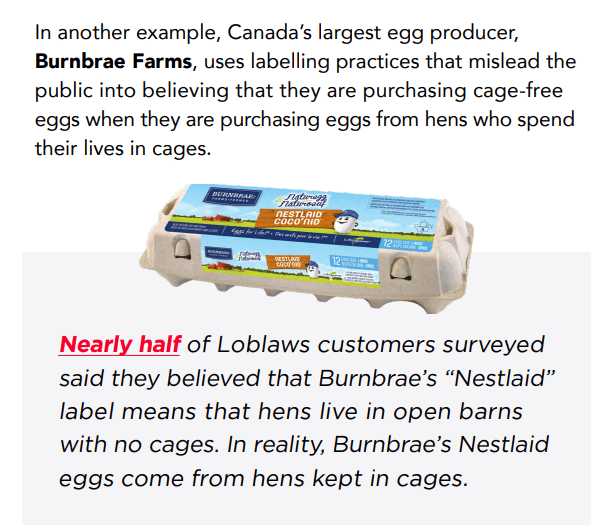
This isn’t surprising given Burnbrae’s Naturegg Nestlaid labels have images of green open pastures and happy cartoon eggs. But in reality, eggs in those cartons come from caged birds kept “enriched cages”.
In reality, Canada is falling behind on welfare
So the industry self-regulates and in its communications positions itself as a leader. While in reality, Canada is falling behind other countries and is failing to deliver on consumer expectations for higher welfare products.
Polls show that Canadians care about animal welfare and they want companies to do the right thing and the industry should deliver. But the lack of legislation and this rise in humane washing shows the importance of bringing greater transparency to animal agriculture in Canada, which is what Mercy for Animals is trying to do through our public reporting and campaigning.
How can consumers push for better practices?
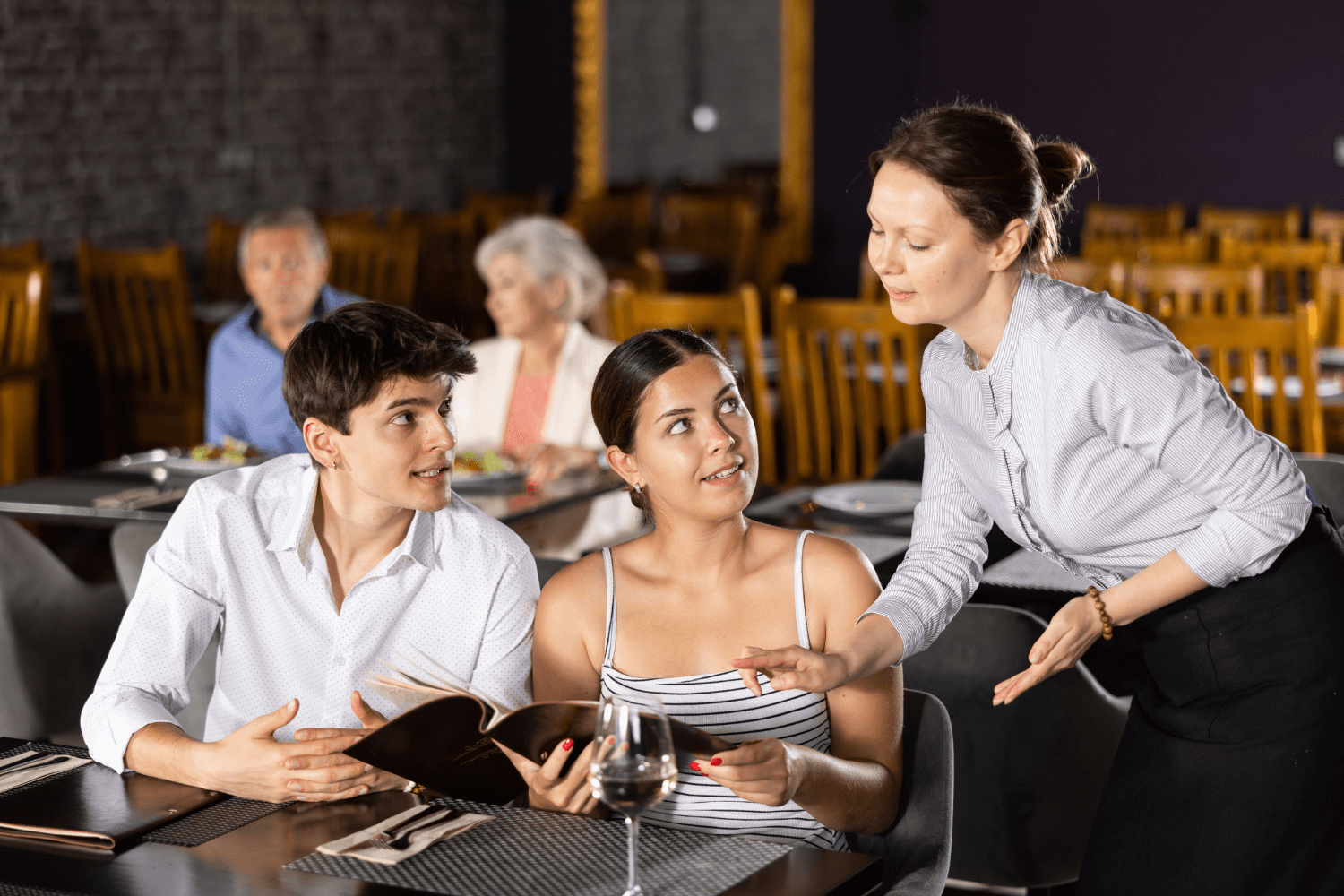
Chantelle: A lot of what we have talked about as well on the show is how these terms like family farms and free run are not regulated terms, so they can be really misleading for the public. And of course there’s the imagery of happy cows on packaging and smiling eggs and smiling chickens and green pastures.
And it’s really disappointing to hear that companies are often misleading consumers and not providing the conditions that people in the general public expect and want. So given that, what are ways that consumers could help push for better animal welfare practices?
Show companies you care
Maha: That’s a great question. You know, one impactful way consumers can push for better animal welfare is to demand better from companies and industry and really show them that they actually care about animal welfare.
The more people we have putting pressure on companies, the better it will be. The louder our message will be.
The Canadian industry is increasingly resistant to change and it justifies its lack of progress by touting a lack of consumer demand for higher welfare products. The truth is Canadians want animals to be treated better, and companies and industry are just failing to make the necessary investment and plans to reduce animal suffering.
Consumers have the power to change that by raising their voices against companies’ inaction.
One tangible step is consumers can visit CanadaScorecard.ca to sign up to learn more about how to take action and make a difference for animals in Canada, which includes joining a community of change makers, organizing local on the ground efforts, taking impactful online action and driving this vital mission forward.
How different companies are performing
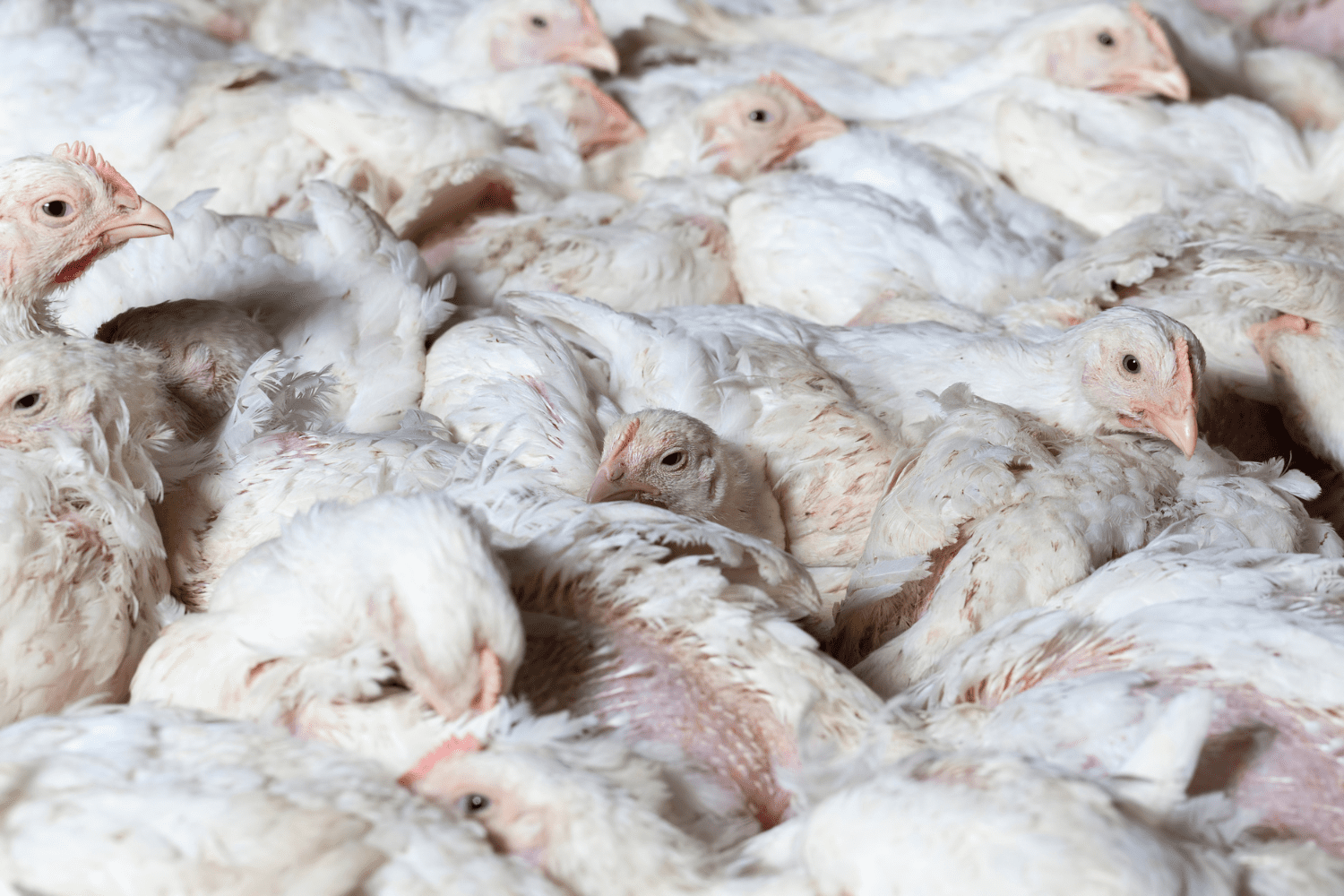
Amy: It’s so important to have things that we can do at a grassroots level because it’s easy to feel hopeless. Making change is a process and it takes time. One of those things that we can do is kind of choose what companies to support or not support.
And I think even as a person who, myself, I eat plant-based, there are some parent companies that own plant-based and meat or plant-based and egg, and so it’s helpful to kind of have a sense of what are the companies that are doing their best and what are the ones that are just not putting effort in.
What have you learned in terms of welfare practices and transparency?
Companies performing well on cage-free egg commitments
Maha: It’s important to note that while some companies may be doing well on certain issue areas, they’re not always performing as well across all animal welfare issues, but I can give you some examples.
When it comes to cage-free policies. In our most recent report, we celebrated McDonald’s Canada, Boston Pizza and Eggsmart for fulfilling their cage-free egg policies one year ahead of their deadlines.
And then Aramark, which is a major food service provider, more than doubled their cage-free egg progress in Canada, which is amazing.
Companies performing poorly on cage-free egg commitments
Maha: Meanwhile, Walmart is now the only top five retailer in Canada not publishing progress toward fulfilling their cage-free policy, which originally had a 2025 deadline before they retracted it. Walmart’s low ranking hasn’t changed in the scorecard for four consecutive years.
Sobeys is another retailer and they’re owned by Empire, which is the second largest retail conglomerate in Canada. And Sobeys is reporting cage-free broad progress, but has failed to publish any targets outlining how they intend to fulfill their cage-free commitment. And the company has stagnated at about 17% progress for the third year in a row.
Another one is MTY group. They own brands like Mr. Sub, Thai Express, Papa Murphy’s. And they reported in 2023 that only 2% of the eggs they sourced were cage-free, despite having adopted their cage-free policy seven years before and being just two years away from their fulfillment deadline of 2025. MTY Group also diminished their commitments and misrepresented the welfare implication of cage systems in their recent sustainability report.
Which companies are adopting the Better Chicken Commitment?
Maha: When it comes to the welfare of chickens raised for meat, food service providers were some of the first adopters of the Better Chicken Commitment, which as I mentioned, are a set of standards stressing of the treatment of chickens raised for meat.
However, two of the largest food service providers, Compass Group and Sodexo have time bound plans for implementing their policies in the United States, but they haven’t extended these roadmaps to their Canadian operations.
Which companies are falling behind for chickens raised for meat?
In contrast, Aramark has published clear milestones and plans that include Canada making them the first multinational company to do so in Canada.
This year we also saw progress on the transition to controlled atmosphere stunning from the industry, which is the slaughter method aligned with the Better Chicken Commitment.
So we saw Maple Leaf Foods and restaurant chain A&W announced having completed their transition to controlled atmosphere stunning.
More companies reported progress toward transitioning their chicken supply to controlled atmosphere stunning for the first time: big retailers like Loblaws, Save On Foods, the pizza chain Boston Pizza, and fast food giant Restaurant Brands International. If you’re not familiar, they own Tim Horton’s, Burger King and Popeye’s.
Which companies are making progress for pigs?
Maha: When it comes to crate free policies, we’ve seen a lot of progress where companies have fulfilled their crate free policies likeA&W, Campbell’s, Chipotle, Costco, Wendy’s.
Starbucks Canada tripled their progress in North America toward transitioning to group housing for mother pigs; and Costco Wholesale Canada reported transitioning to group housing for most of their private label pork retailers. Save On Foods reported progress on their transition to group housing for the first time.
Which companies have not made progress for pigs?
Maha: There are also companies that still either have no crate-free policies or have reported no progress toward them. And these include Aramark—which as I mentioned before, had made progress for chickens raised for meat—and also Calgary Co-op; Chairman’s Brands, which owns 241 Pizza, Coffee Time, and Eggsmart; Compass Group; Foodtastic; Sodexo Canada; and Subway.
So as you can see, some companies may be progressing on one issue, not on the other. There are some promising developments that we’ve seen over the years.
How Canada stacks up against other countries
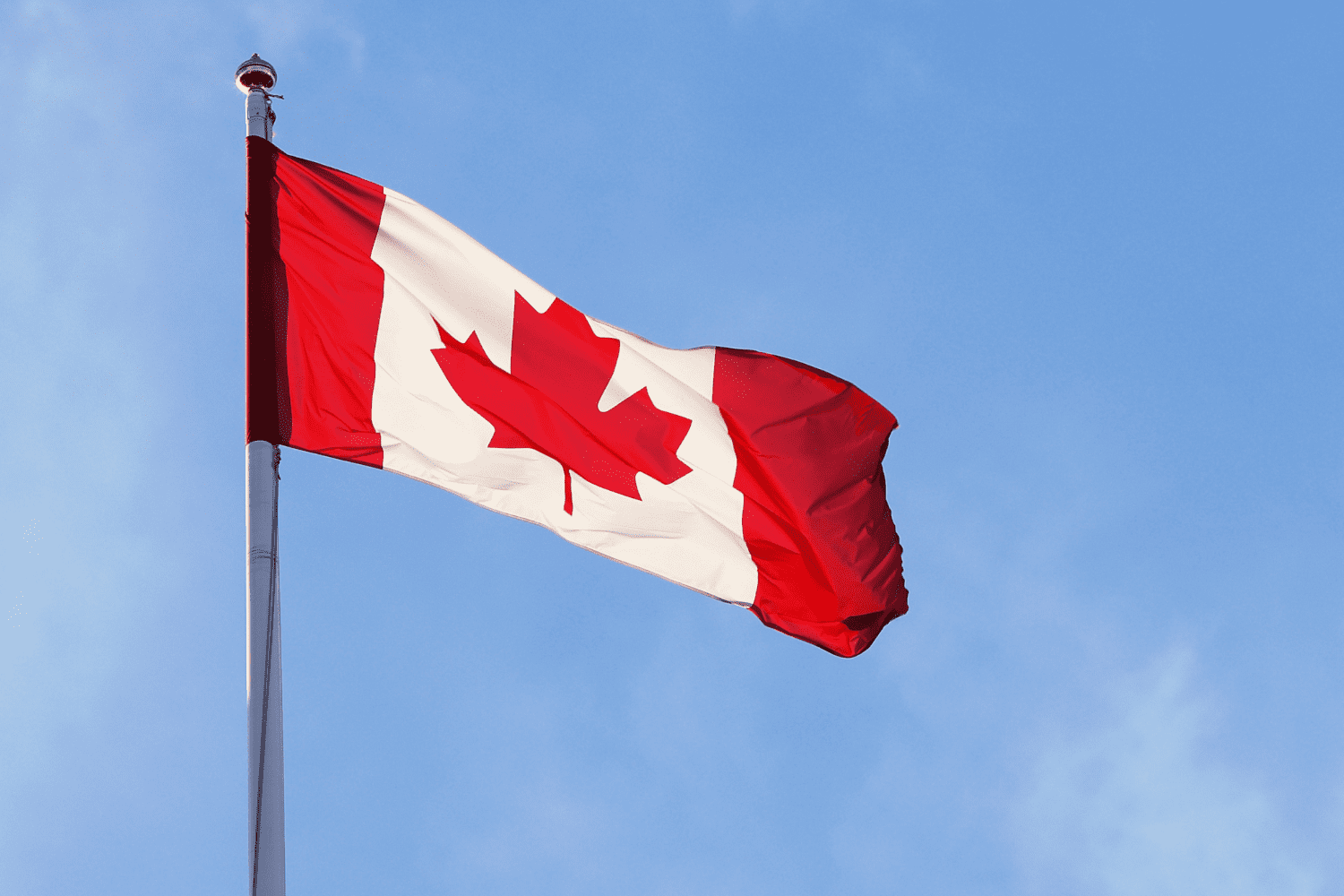
Chantelle: It’s really good to see those developments, and I really appreciate how in-depth the scorecard is when it comes to looking at those companies.
Looking at a Canadian context, I know a lot of people right now are shopping Canadian companies specifically, so it’s really important that Canadian companies are living up to those animal welfare commitments so that people can shop in a way that’s aligned with all their values.
So looking at that, how do Canadian companies stack up compared to other countries?
Canadian egg-laying hens stuck in cages
Maha: Canada is making almost no progress on eliminating cages and has fallen far behind the United States, the United Kingdom, and the European Union on cage-free egg production.
Many European countries and US states have enacted laws banning cages for laying hens.
And to put this into perspective, 82% of hens in Canada’s egg farms still spend nearly their entire lives in confinement. Meanwhile, the numbers in the UK are 23%, 39% in the European Union, and 61% in the United States.
The Canadian egg industry has no public plan to end the confinement of laying hens, and is simply replacing conventional cages with enriched cages.
Since 2019, cage-free egg production in Canada has increased by a mere two percentage points, while production in enriched cage systems has nearly doubled, accounting for about 34% of all egg production in Canada.
The Canadian egg industry continues to fall further behind each year, which puts companies at risk of defaulting on their public commitments.
And this is reflected in seeing multinational companies like Costco and Kraft Heinz that have fulfilled or almost fulfilled their cage-free policies in other countries and regions. But they’ve progressed very little on cage cage-free sourcing in Canada, which really shows that companies are underperforming in Canada and failing to use their resources and power to help catalyze a cage-free transition in the country.
Canadian companies lack comprehensive policies on the Better Chicken Commitment
Maha: I could also speak about broiler welfare. The industry refers chickens raised for meat as broilers.
Many large retailers in the US and Europe have policies aligned with the Better Chicken Commitment and are even reporting progress toward fulfilling these commitments. But not one major retailer in Canada has a comprehensive public policy aligned with the BCC.
NFACC codes, which are used as industry guidelines in Canada, as I previously mentioned, are pretty weak when it comes to chickens raised for meat.
When we’re evaluating companies on chicken welfare, we’re looking at how well they’re advancing towards these leading standards. NFACC guidelines fall way short of aligning with these more stringent standards. They have no provisions for transitioning from fast-growing breeds or the typical slaughter method.
It’s encouraging to see that in Canada, some producers are, however, helping move the industry forward on chicken welfare. Canada’s largest chicken producers, Maple Leaf and Cargill, have reported progress on reduced stocking density and the use of enrichments, and they have fully transitioned to controlled atmosphere stunning, the BCC-aligned processing method.
But these producers are still failing to address the serious welfare concerns of ultra fast-growing breeds, which remain the norm in the Canadian chicken industry. And these breeds are one of the root causes of suffering for chickens raised for meat.
Vision for the future
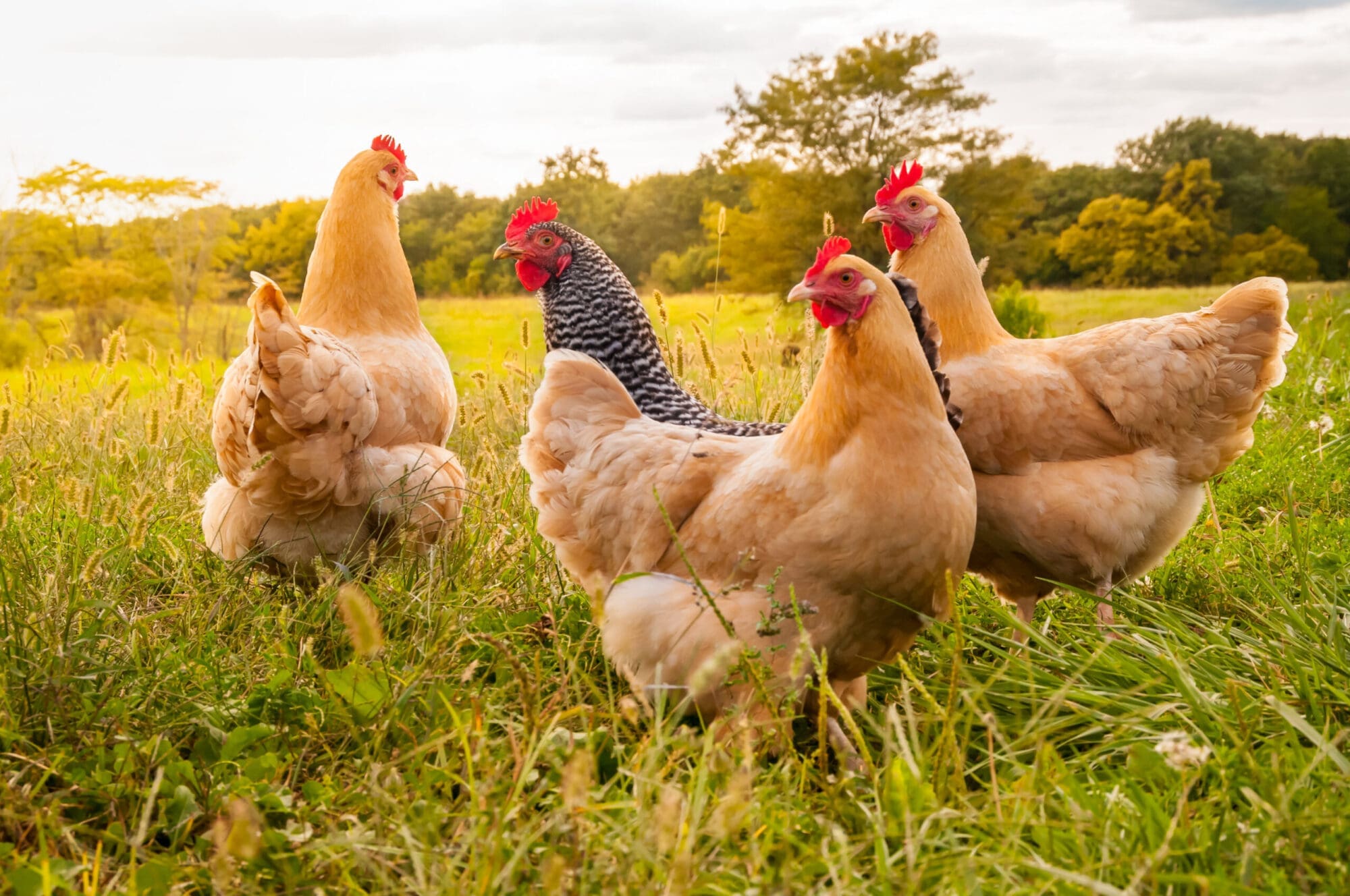
Amy: I really appreciate you highlighting some of these.
For a while I was working on farms, both in New Zealand and in Canada. Sort of not just working, but also doing tours, checking them out for different reasons.
And one of the farms that I was on was an egg-laying hens farm. It was interesting talking to the farmer, because he sort of felt that the enriched cages were better for the welfare of the hens, and he couldn’t himself figure out how to do the free range in a way that he felt good about.
And so it was sort of this like, well, from my observations, this one system works better than this other one. So rather than working towards making the free range system better, there is this sense of like, there’s more control with the enriched cages, so it’s “easier” to go to that.
I found that really disappointing that rather than innovating in ways that would give hens the chance to scratch in the dirt and dust bathe, there was this sense that, enriched cages are “good enough”.
I’m curious to hear what you think are changes that you’re hoping to see in the food and animal agriculture industry.
Maha: Absolutely, and that’s such a good point. At the end of the day, enriched cages may give a farmer more control or a sense of control, but it doesn’t give a bird more control over their freedom to move, their freedom to flap their wings, their freedom to forage, their freedom to roam within a larger space.
A future without industrial animal agriculture, a present with less suffering
Maha: Ultimately, Mercy for Animals wants to see a massive transformation within the food system—one where industrialized animal agriculture no longer exists.
We recognize that this type of systemic change will take time, but in the meantime, we want to see a significant reduction in animal suffering within the current system.
We need animal protection legislation that’s enforceable, and also to turn what are current voluntary codes of practice for industry into mandated, enforcable regulations. This would mean raising animal welfare standards to ensure better living conditions and more ethical practices, which could stand to impact millions, if not billions of animals every year.
In the immediate future, we want to see corporations, which have immense power to influence their supply chains, take responsibility by adopting and implementing policies that genuinely improve animal welfare.
By doing so, these companies can lead the way in driving more humane and sustainable practices in the industry, making a tangible difference for animals and meeting consumer expectations for better animal welfare.
Save lives by eating more plants
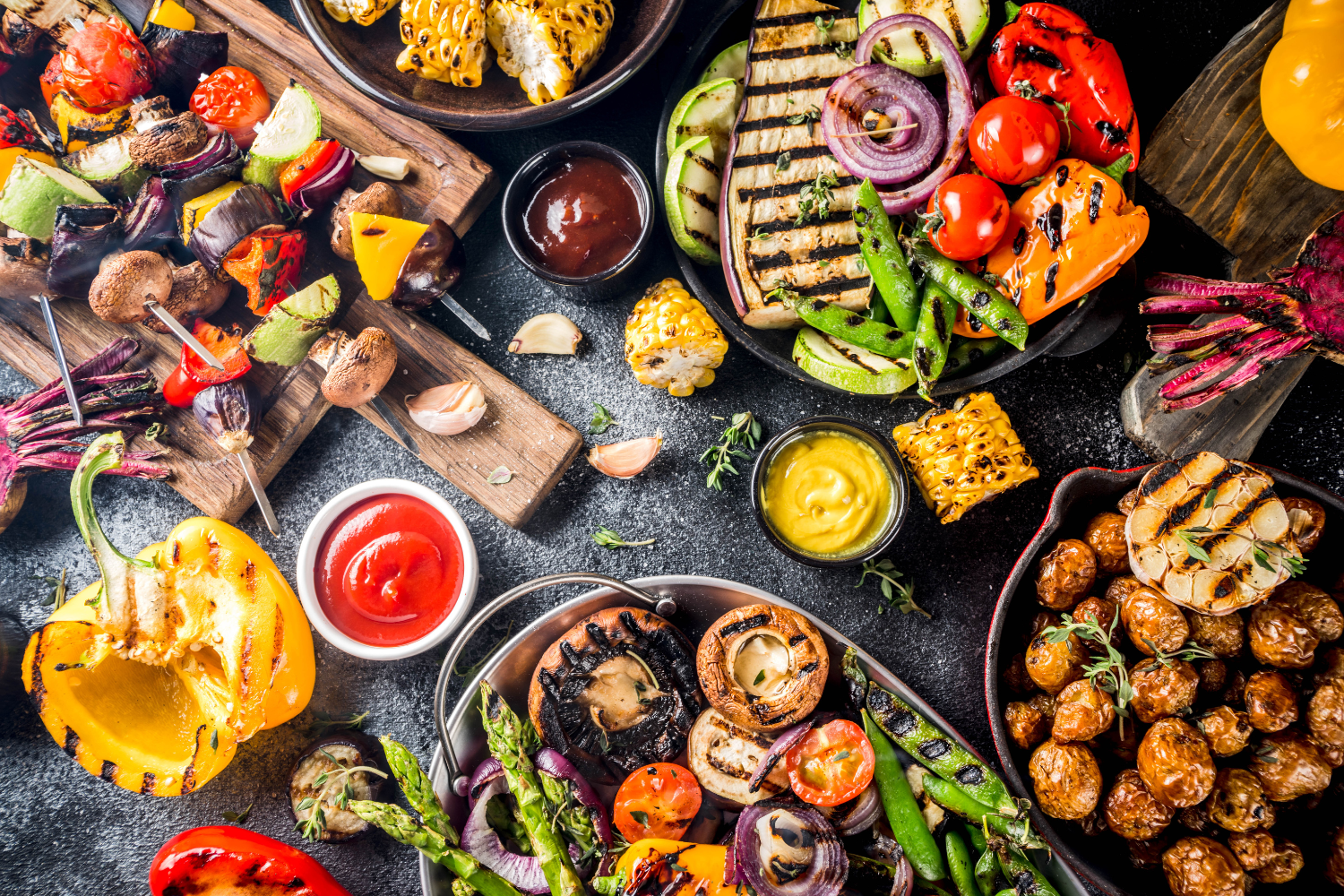
Chantelle: Thank you so much for sharing that. As you said, there’s billions of lives being affected by this, so it’s going to be really important for companies to be shifting from the thing that is easier to the thing that is right for these animals.
Before you go, is there anything else you would like to share with our listeners?
Maha: I’d like to share that while Mercy for Animals’ Canada Animal Welfare Scorecard advocates for better animal welfare standards within the industry, one of the most powerful choices compassionate consumers can make to protect animals from horrific cruelty is to incorporate more plant-based foods into their diet and support companies that are prioritizing animal welfare.
Consumers hold tremendous power, and with that power, they can urge decision-makers, corporations, and producers to end their reliance on some of these horrific practices, such as extreme confinement and breeding for rapid growth, and help reduce the suffering of millions of animals in the process.
I encourage listeners to visit our website, mercyforanimals.org to learn more about our work and ways to get involved to drive meaningful change for animals in Canada.
Next episode
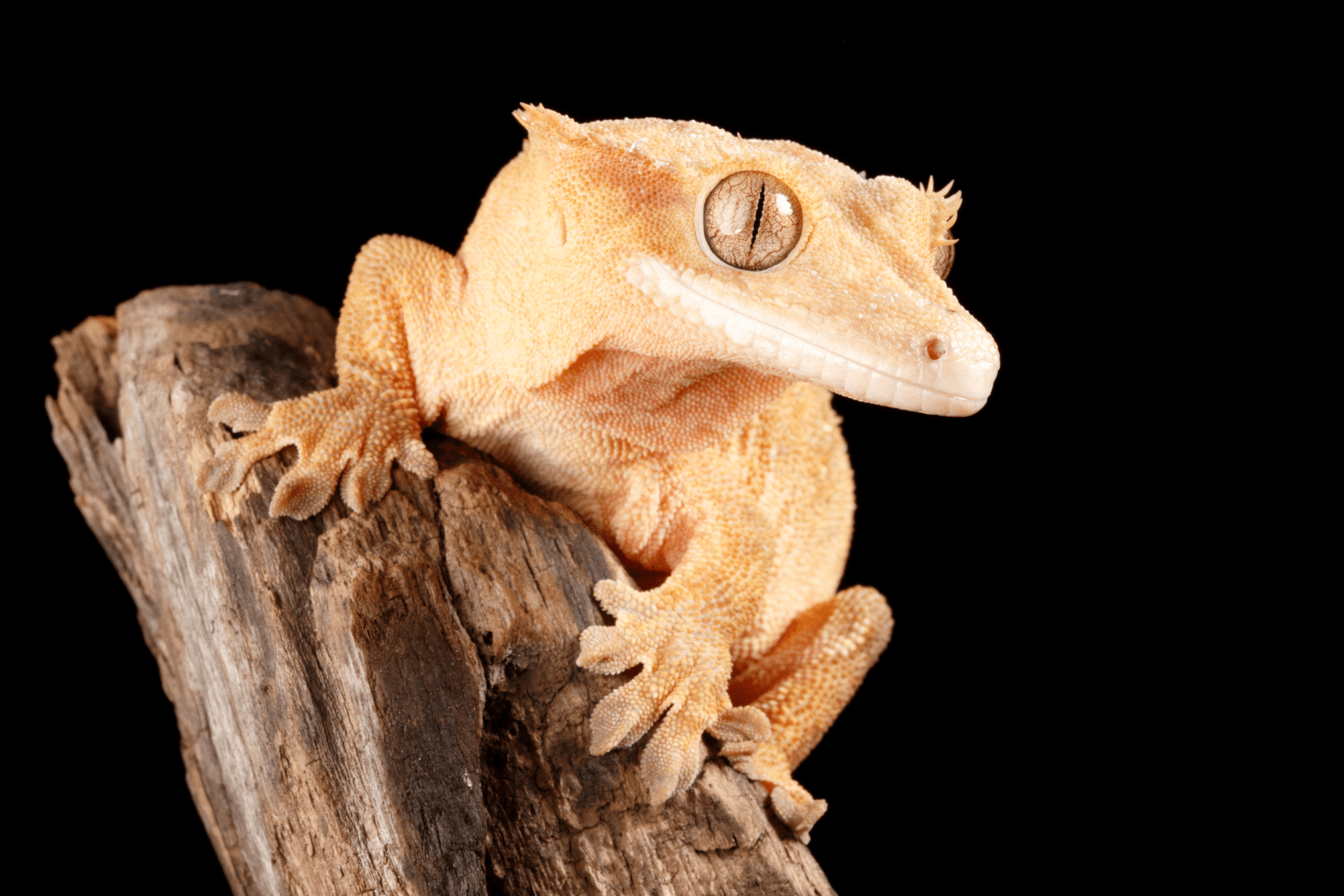
Please join us again next month as we discuss the wildlife trade and exotic pets in Canada!
